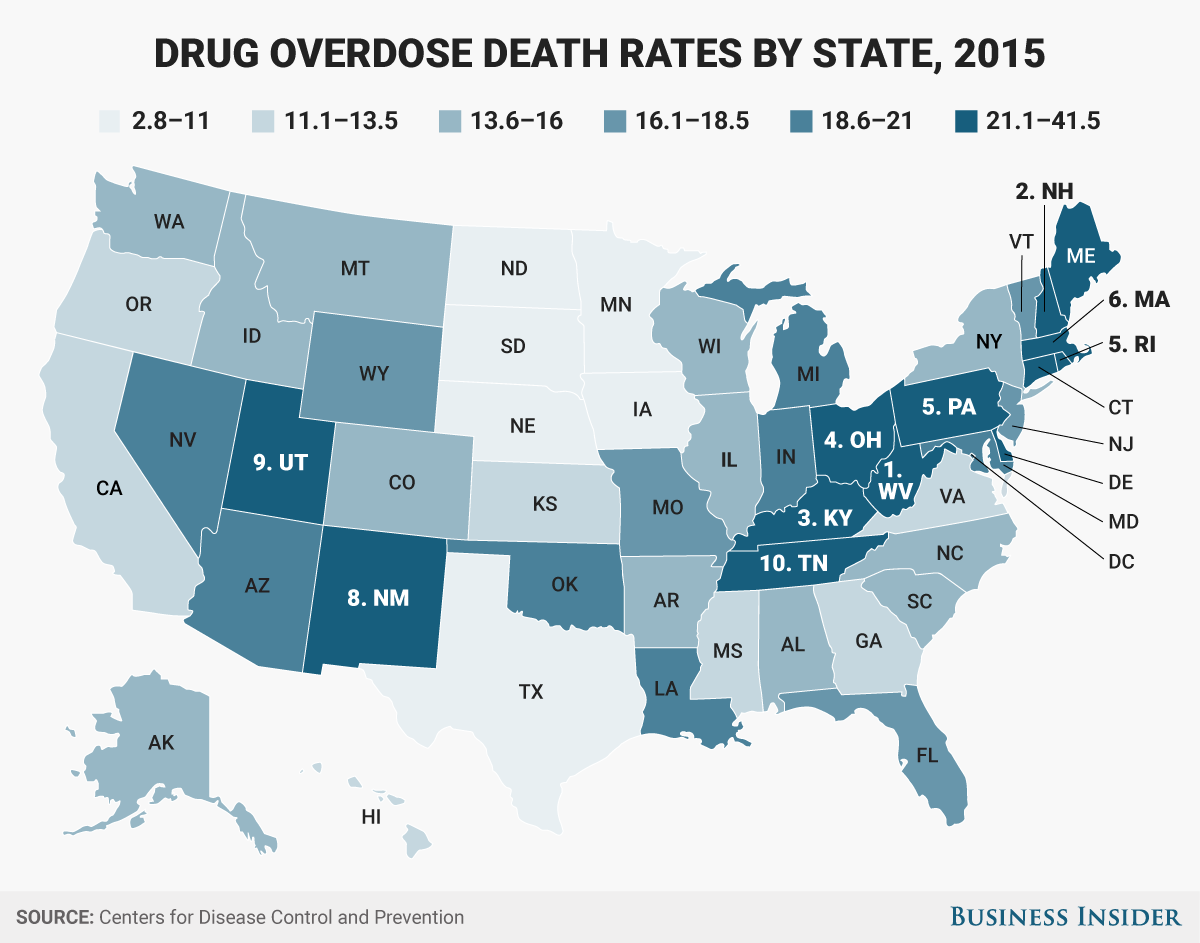The choice for states

Skye Gould/Business Insider
Thirty-two states and the District of Columbia expanded Medicaid under the new ACA requirements and received federal funds to do so. While those states would be the most affected by the changes, due to their larger Medicaid populations, all states would see major effects.
To stay above water, states would either have to spend more money on their Medicaid programs — a daunting proposition for poorer states like West Virginia, where one-third of its population is on Medicaid — or cut costs.
Because Medicaid is already one of the lowest-cost providers of healthcare, a state could either cut benefits, which would affect the quality of coverage, or reduce who is eligible for the program, which could hurt people with disabilities, older people, or people suffering from substance abuse.
One of the first things to go could be treatments for substance use and mental illnesses, Frank said.
Even if state Medicaid programs don’t cut coverage for substance-use treatments, the per-capita proposal would likely be devastating in terms of the opioid epidemic.
Opioid-overdose deaths increased by about 15% in 2014 and 2015, and Medicaid has paid for more than 50% of substance-use treatment services in some states, according to official statistics. Medicaid recipients’ access to treatment has increased by between 20% and 25% over the past several years, according to Frank.
Those numbers far outpace a growth in spending fixed to CPI-M or CPI-U.
If the proposal were to become law, Ohio, Pennsylvania, and West Virginia — among other states suffering the brunt of the opioid crisis — would be ill-suited to handle the loss in funds, government officials and treatment experts say. And that’s to say nothing of states like Florida, where a disproportionately aging population could suffer.
The plan wouldn’t likely be popular with the public. When presented with a choice of accepting the Republicans’ proposals to limit Medicaid spending or keeping the program the same, 65% of respondents said they would want the program to stay the same, according to a tracking poll released in February by the Kaiser Family Foundation.















